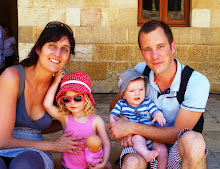 La teta asustada (English: The Milk of Sorrow) is a 2009 film by Peruvian director Claudia Llosa and starring Magaly Solier, addressing the fears of abused women during Peru's recent history. It won the 2009 Golden Bear award and FIPRESCI prize in that Festival, as well as the award for best movie in the 24 Festival Internacional de Cine de Guadalajara in Mexico
La teta asustada (English: The Milk of Sorrow) is a 2009 film by Peruvian director Claudia Llosa and starring Magaly Solier, addressing the fears of abused women during Peru's recent history. It won the 2009 Golden Bear award and FIPRESCI prize in that Festival, as well as the award for best movie in the 24 Festival Internacional de Cine de Guadalajara in MexicoBetween 1980 and 1992 Peru experienced a period of violence, particularly in the Andean region, because of the uprising of the Maoist group Sendero Luminoso (Shining Path) and the actions of the paramilitary and state armed forces. By 1990 the conflict finally reached Lima, the capital city of Peru.
Claudia Llosa claims in her film that the trauma experienced by women who were raped by members of Sendero Luminoso was passed on to their children through the milk from their breasts (although no allusions are made about rapes by other forces in the conflict), thus this period of violence continues to effect not only those who experienced it, but the next generation as well. Llosa's work is a psychological as well as sociological approach to the 12 years of conflict, and is critical of Sendero Luminoso actions.



